|
|
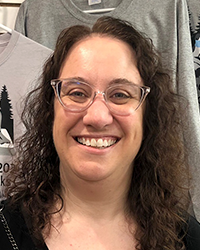 Jen Jen
|
 |

|
|
Independence
Chitra Banerjee Divakaruni
In December, the Beagle Women’s book group discussed Independence, and I’m so glad they chose it! Independence refers to the independence of India from British rule. The book is mostly set from about 1946–1948. (Spoiler: Gandhi is assassinated towards the end of the book.) A doctor in a rural village has three grown daughters: Priya, Deepa, and Jamini. The sisters differ in big ways, but all agree that their family is of top importance. Priya wants to follow in her father’s footsteps and become a doctor, although India in the 1940s made it difficult for a woman to do so. Deepa plans to marry someone who will bring great pride/status to the family, but then falls in love with her father’s assistant, who is a Muslim (the sisters are devout Hindus.) Jamini has spent her life feeling a little less-than because of a visible physical limitation and devotes herself to the welfare of her mother. As neighbors turn against each other, the family struggles to stay connected. The characters are well drawn, the writing is good, the time and place of the book are historically interesting, and it’s just a dang good story. I’m a big fan of this author and I highly recommend the novel!
|
| |
|

|
|
Cabin
Patrick Hutchison
You probably know someone like the young version of Patrick Hutchison, the author of Cabin—affable, easy-going, likely a great sports teammate, and might not be your first choice for say, Math League (or anything requiring precision.) This is what I'm calling a Coming-of-Adult rather than Coming-of-Age book. The author had graduated college, had a job (not one he enjoyed but it paid and had benefits), paid rent, and was adulting, mostly. However, he lacked a driving passion for anything. On a bit of a whim, he bought (if borrowing the money from his mom counts as buying) a 120 square foot cabin (yes one hundred twenty) that was likely listed as "handyman's dream", except Patrick wasn't a handyman. He fell in love with the cabin and the land though, and amazingly, had many friends willing to come and work on it. I won't spoil the ending for you, but you can probably see where this is going. The rare thing about this book is how many people I think it will appeal to—outdoorsy types (who will have many a laugh over the author's learning to do carpentry), aimless young people wondering what they should be doing, and basically anyone with friends and a sense of humor. |
|
|
|
|
|
|
|
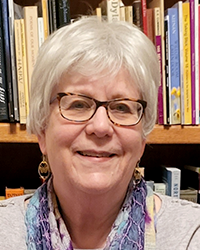 Sally Sally
See another review by Sally in Youth Yak.
|
|
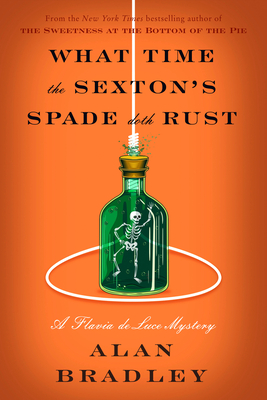
|
 |
What Time the Sexton's Spade Doth Rust
Alan Bradley
I am a long-time fan of Alan Bradley’s series of mysteries featuring the precocious Flavia de Luce, a young self-taught chemist with a penchant for murder investigations. I thought the series concluded five years ago, so the recent publication of one more book was a real treat! Much has changed in Flavia’s world: her father has died, and she has inherited Buckshaw, the family estate; one of her sisters has married and the other is preparing to go to Oxford; and her obnoxious younger cousin, Undine, seems to be living permanently at Buckshaw.
At the same time, much is still the same: the local police still don’t welcome her presence in murder investigations; England is still emerging from the privations of WWII; Buckshaw is as shabby as ever; Mrs. Mullet and Dogger are stalwart companions; and Flavia is a comical blend of sophistication about chemistry and classical literature and naivete about the larger world. The murder in this book is of a Major Grayleigh, and Mrs. Mullet is suspected of poisoning him. While the plot is as engaging as ever, there’s a sobering twist near the end of the book. Flavia also engages in philosophical reflection and is alone in ways she wasn’t in earlier books. The book is an engaging and worthy addition to the series, even as the reader realizes that Flavia is moving toward adulthood in her own indomitable way. |
| |
|
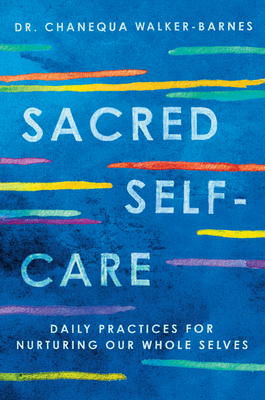
|
|
Sacred Self-Care
Dr. Chanegua Walker-Barnes
Ah, January! The month of resolutions to lose weight, acquire healthy habits, and generally become a better person. I’m grateful to Rebekah for introducing me to this book, which fits with January, but at a deeper level. It’s organized as a traditional daily devotional, with scripture and reflection, but each day ends with “Today’s Practice,” an exercise to internalize the reading. While initially designed for use in Lent, the book is suitable for any time of the liturgical year. The reader is invited to deepen self-care as sacred action, and to cultivate love and compassion for self. I highly recommend it.
|
| |
|
|
|
|
|
|
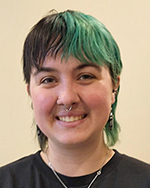
Cascade
|
|
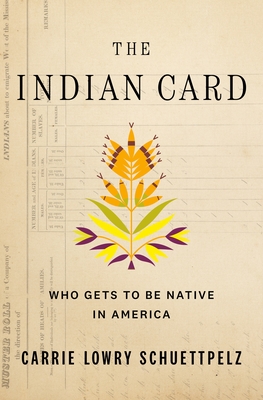 |
|
The Indian Card: Who Gets to Be Native in America
Carrie Schuettpelz
The Indian Card is a fascinating look at how various tribes and the federal government decide who qualifies as Native American. Specifically focusing on tribal enrollment for much of the narrative, Schuettpelz delves into the history of colonization and the ways European intervention has complicated Native identity and attempted to categorize race, often through the concept of blood quantum. The author is clear that this is not an exhaustive account, but it is a good place to start learning about this topic, and book groups will find a lot to discuss. At times humorous, this non-fiction book is for the layperson and scholar alike. |
| |
|
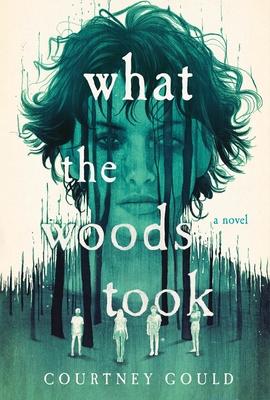 |
|
What the Woods Took
Courtney Gould
What the Woods Took is a gripping survival story with unique horror elements and a complex protagonist. Devin is kidnapped late one night by people sanctioned by her foster parents to take her to a wilderness therapy program. Unceremoniously left in the woods, Devin meets a group of troubled teens and the chipper counselors there to keep them alive for 50 days. Devin immediately begins plotting her escape, until one morning the teens wake up to discover that the two counselors are missing. The inexperienced group must survive several weeks before anyone will suspect they are missing... and something is lurking amidst the trees. What I most enjoyed about this book was the horror ingrained in both the premise of the wilderness therapy camp—many people who experience those programs in real life report coming out traumatized—and the beings residing in the woods. |
| |
|
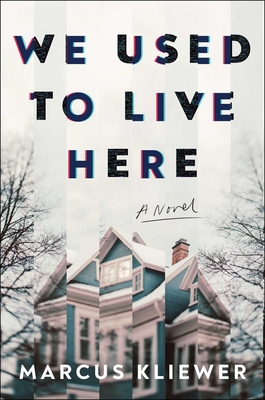 |
|
We Used to Live Here
Marcus Kliewer
This is probably the best horror/thriller novel I read in 2024 and it starts with a deceptively simple premise: what would you do if a man came to your door saying he previously lived in your house and would like to give his family a tour of his childhood home? Eve is a people pleaser who agrees hesitantly to a quick visit, but the family doesn’t seem to understand when they start to outstay their welcome. I don’t want to detail more of the plot because this book is best enjoyed with little prior knowledge. I would describe this book as a psychological thriller with horror elements and it is best read physically because there are puzzle elements like morse code and “random” capitalization that would be hard to decipher on audio. |
| |
|
|
|
|
|

Hannah
|
|
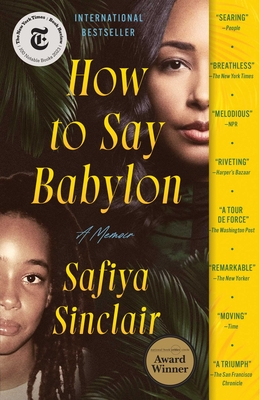 |
|
How to Say Babylon
Safiya Sinclair
This is a memoir of a poet raised by Rastafari parents in Jamaica. It’s a bit like Tara Westover’s Educated, but Sinclair’s coming of age is a mix of extreme control by her reggae musician father, rescues by her mother, siblings that are fellow sufferers, a solid education that allows her brilliant and disciplined mind to flourish, and fascinating insights into a society I knew only by “Don’t worry! Be happy!” And this memoir is written in the voice of a master poet, which shows in her prose. It’s a monumental book.
|
| |
|
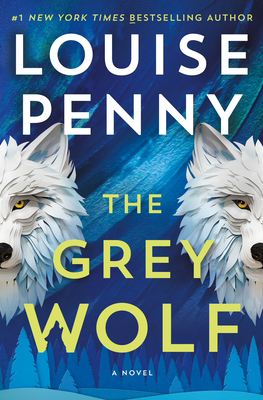
|
|
The Grey Wolf
Louise Penny
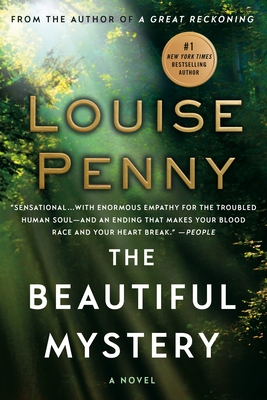 If you are in the Penny fan group already, all you need to hear is that she’s done it again. But let me add that this book revisits the scene and some characters from my favorite of the series, the beautiful and terrible The Beautiful Mystery. If you are in the Penny fan group already, all you need to hear is that she’s done it again. But let me add that this book revisits the scene and some characters from my favorite of the series, the beautiful and terrible The Beautiful Mystery.
And the ending of The Grey Wolf makes it clear that her next book is in process.
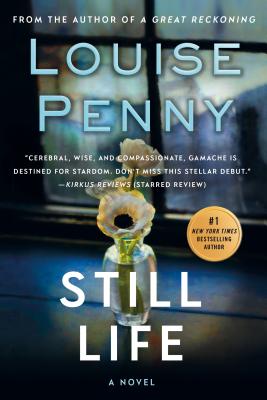 If you haven’t discovered Penny yet, don’t read this first. Read Still Life, the first book in the series. If you haven’t discovered Penny yet, don’t read this first. Read Still Life, the first book in the series.
|
| |
|
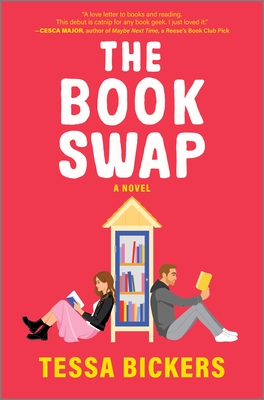
|
|
The Book Swap
Tessa Bickers
Here’s a novel for book lovers who find the movie You’ve Got Mail charming. A man and a woman accidently open up a conversation using notes written in the margins of books left in a walk-in free library in London. In real life they know each other, but they don’t know who they’re pouring out their hearts to. The ending is more complicated than the movie’s. But the vibe is the same, and the conceit allows readers to enjoy lines from books we’ve all read.
|
|
| |
 |
  |
 |
|
|
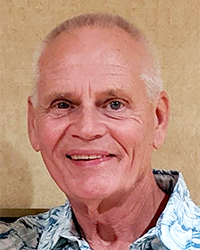
Lee
|
 |
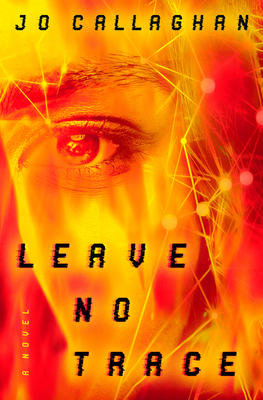 |
 |
Leave No Trace (Kat and Lock #2)
Jo Callaghan
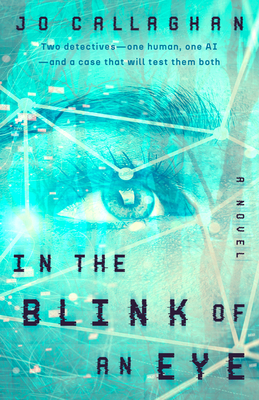 Detective Chief Superintendent (DCS) Kat Frank and the AI detective Lock were introduced in the first book in this series, In the Blink of an Eye. Detective Chief Superintendent (DCS) Kat Frank and the AI detective Lock were introduced in the first book in this series, In the Blink of an Eye.
Even if you did not read that book, you can enjoy this one.
A man has been crucified and his ears cut off. Kat and Lock have been successful with cold cases, so they are now given the opportunity to take on this case. Within days, there is a second victim, and Kat’s team is under pressure to find the killer before their team is either again relegated to cold cases only or disbanded.
The examination of grief, trauma, and what it means to be human make this novel much more than a detective procedural.
Note: this book will be published in the US on January 7.
|
| |
|
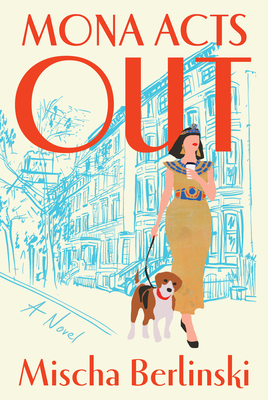 |
|
Mona Acts Out
Mischa Berlinski
Mona Zahid wakes up on Thanksgiving morning. Her in-laws are there, along with her husband (with whom she is unhappy), her son, and more. Mona is a skilled and experienced Shakespearean actor, soon to begin rehearsals for Cleopatra. Given her age, it is likely the last leading role she will have. She needs to have some time, so she heads out with the dog to buy parsley. This leads to an overnight ramble that brings past and present together.
As a long-ago English major, I read most (maybe all) of Shakespeare’s plays. My roommate and I found the plays to be much more approachable and enjoyable by doing 2-person readings. We were on the right track, but this novel explains so much more about how Shakespeare should be presented. (Does that sound horrible? LOL. It really is much more casually informative and fascinating than didactic.)
In any case, this is quite a great novel that shows how much we learn from the roles we play.
Note: this book will be released January 21.
|
| |
|
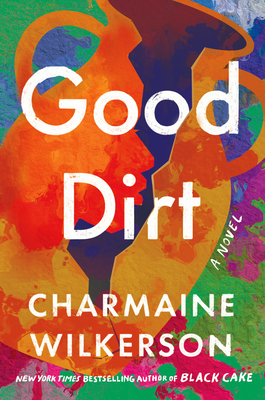 |
|
Good Dirt
Charmaine Wilkerson
Ten-year-old Ebony Freeman is playing hide-and-seek when her brother Baz is killed by home invaders. His last thoughts are the family’s heirloom jar, which has been shattered. The family is quite wealthy, and this is an affluent community, so there is a media frenzy.
Years later, the tragedy still haunts the family, and Ebony is abandoned at the altar by the son of another wealthy family. Ebony needs time to herself, away from her parents and the media, so she heads off to France to stay with a friend. And describing anything after that would be a spoiler…
This is a story about love, grief, family, and history. It is an exceptionally well done multi-generational novel. A couple of quotes that will stay with me:
Sometimes, when a person comes around, it’s simply too late.
History is a collective phenomenon. It can only be told through a chorus of voices.
Note: this book will be released January 28.
|
| |
|
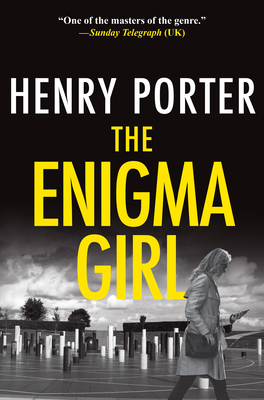
|
|
Enigma Girl
Henry Porter
Slim Parsons is a deep cover agent for MI5. Or she was until she managed to escape from a deadly situation and go into hiding. She is given an opportunity to redeem herself, perhaps, by infiltrating a news organization that has secrets that the British ruling classes (and MI5 itself) do not want revealed. In exchange, she wants the Security Services to search for her missing brother.
There are lots of moving parts and some absolutely magnificent characters in this novel, and it is great fun trying to keep up with it all.
Note: this book will be released January 28.
|
| |
|
|
|
|
|
|
|
Would you like to be a guest reviewer?
Email Sally at sally@beagleandwolf.com. |
| |
|
|
|
|
|
— page top —
|
|

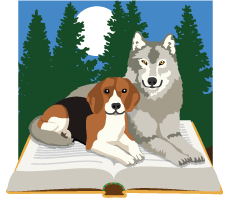















 If you are in the Penny fan group already, all you need to hear is that she’s done it again. But let me add that this book revisits the scene and some characters from my favorite of the series, the beautiful and terrible The Beautiful Mystery.
If you are in the Penny fan group already, all you need to hear is that she’s done it again. But let me add that this book revisits the scene and some characters from my favorite of the series, the beautiful and terrible The Beautiful Mystery.  If you haven’t discovered Penny yet, don’t read this first. Read Still Life, the first book in the series.
If you haven’t discovered Penny yet, don’t read this first. Read Still Life, the first book in the series. 

 Detective Chief Superintendent (DCS) Kat Frank and the AI detective Lock were introduced in the first book in this series, In the Blink of an Eye.
Detective Chief Superintendent (DCS) Kat Frank and the AI detective Lock were introduced in the first book in this series, In the Blink of an Eye. 


